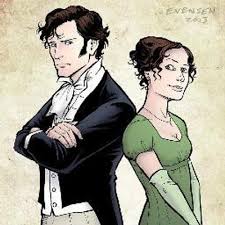Day 7’s subject was ‘Favourite free RPG’. I chose Lady Blackbird: Adventures in the Wild Blue Yonder, not having the hugest amount of experience with free RPGs. So I mainly chose one I’d actually read, but Lady Blackbird is a beautifully-designed game and it feels like a privilege to be able to read it for free. In many ways, it’s very similar to FATE with aspects (keys and secrets in this) but you add to a dice pool rather than spending points to tag aspects. It’s a gaslight fantasy adventure which is only 16 pages long but manages to give a really evocative setting and fascinating characters. I’ve never tried running it, but I would love to see the game expanded out into a full system – apparently Lady Blackbird is not great for a campaign. But seriously, if you want to see how a free RPG can raise the bar for indie projects, check out Lady Blackbird. I’ve heard good things about Lasers and Feelings from the same studio but haven’t yet had a look.
The Story Games forum used to have an utterly fantastic wiki called the Story Games Codex which explained some of the dominant theories and elements of story games, as well as lists of RPGs that suited conditions like ‘free’ and ‘family friendly’. Sadly, that disappeared some time ago – now there is a new wiki in place but it has very little content. That list had some really great games on it that I suspect I’ll never be able to find again, like a game that was just written up on some blog that a parent had written to run for their kids, and was about a midnight adventure. Things like that are few and far between, and finding them again is basically impossible in the vast Internet.
RPGs feel like they exist in quicksand. Some things, like Dungeons & Dragons and the Forge are fixed enough points that they’ve attracted scholarly attention, but there is so much out there that is lost when someone can’t keep renewing their hosting or buried in a lengthy thread in the archives of a forum somewhere. Maybe that’s OK, I dunno. The archivist and academic in me screams about that. Gaming is by nature an ephemeral artform that mainly exists in memory, but we’re increasingly driven to record everything, especially those things that we know will never be repeated. We film performances of plays and record music, and document every experience with selfies and statuses.
The thing is that we don’t have rockstar GMs except in very small communities and pockets of fandom. I often get sad that a GM’s brilliant campaign or adventure might be forgotten if they don’t keep extensive notes or write-ups. But then, is it possible to record a gaming experience? Actual play recordings are always somewhat unsatisfying to me. While there are some larp photographers who have got the whole thing down to a fine art (particularly those who haunt the Profound Decisions events like benevolent fairies), photographing theatre-style and smaller-scale larps is invariably a little disappointing. It’s a reminder that this is just a bunch of people standing in a room in silly costumes, not a creepy circus in the Hedge or a vampire’s stately home. Similarly, accounts of games and even GM notes don’t tell the whole story, and can’t capture the entire experience.
But then, listening to a recording of a musician on tinny speakers isn’t capturing the whole experience. Listening live adds a dimension and energy that you just can’t recreate except in remembering that performance. So should we stop trying to record great performances? I don’t think so. The RPG community is so wide and varied that it becomes a very difficult task to keep up with it. You have to lurk on endless message boards, keep up with obscure developers through their own web pages and go by word of mouth. But there is so much good stuff going on out there – bloggers and theorists coming up with models for roleplaying, random little RPGs with revolutionary concepts, and so much rich discussion on forums. A hell of a lot of dross as well, but that’s true anywhere, and the really good creators and theorists are struggling to be heard. The problem is, most of it is fan-driven and a lot of it disappears, never to surface again. We’re currently in a very slow climb towards roleplaying being considered more mainstream and ‘respectable’ as geek culture becomes more central to society, and hopefully there will be more consistent academic attention pointed to it then. But for now, it’s up to the fans and creators to preserve it, and keep expanding it.











